#indra's net
Explore tagged Tumblr posts
Text
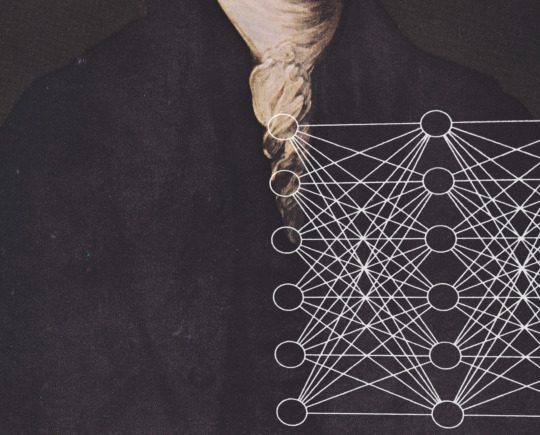
I get this feeling I'm in motion
421 notes
·
View notes
Photo

"Imagine a multidimensional spider's web in the early morning covered with dew drops. And every dew drop contains the reflection of all the other dew drops. And, in each reflected dew drop, the reflections of all the other dew drops in that reflection. And so ad infinitum. That is the Buddhist conception of the universe in an image." –Alan Watts
#photography#nature#spider web#spider#web#alan watts#quote#quotes#philosophy#buddhist#multidimensional#indra's net#u
145 notes
·
View notes
Text

“The Net of Indra is a profound and subtle metaphor for the structure of reality. Imagine a vast net; at each crossing point there is a jewel; each jewel is perfectly clear and reflects all the other jewels in the net, the way two mirrors placed opposite each other will reflect an image ad infinitum. The jewel in this metaphor stands for an individual being, or an individual consciousness, or a cell or an atom. Every jewel is intimately connected with all other jewels in the universe, and a change in one jewel means a change, however slight, in every other jewel.”
From The Enlightened Mind by Stephen Mitchell.
“Far away in the heavenly abode of the great god Indra, there is a wonderful net which has been hung by some cunning artificer in such a manner that it stretches out indefinitely in all directions. In accordance with the extravagant tastes of deities, the artificer has hung a single glittering jewel at the net’s every node, and since the net itself is infinite in dimension, the jewels are infinite in number. There hang the jewels, glittering like stars of the first magnitude, a wonderful sight to behold. If we now arbitrarily select one of these jewels for inspection and look closely at it, we will discover that in its polished surface there are reflected all the other jewels in the net, infinite in number. Not only that, but each of the jewels reflected in this one jewel is also reflecting all the other jewels, so that the process of reflection is infinite. The Hua’yen school [of Buddhism] has been fond of this image, mentioned many times in its literature, because it symbolizes a cosmos in which there is an infinitely repeated interrelationship among all the members of the cosmos. This relationship is said to be one of simultaneous mutual identity and mututal intercausality.”
~ Francis H. Cook, Hua-yen Buddhism: The Jewel Net of Indra
Photo: Indra’s Net by Doug Benner
20 notes
·
View notes
Text

2 notes
·
View notes
Text
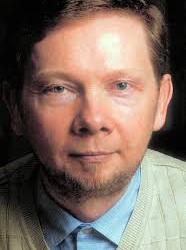

youtube
youtube

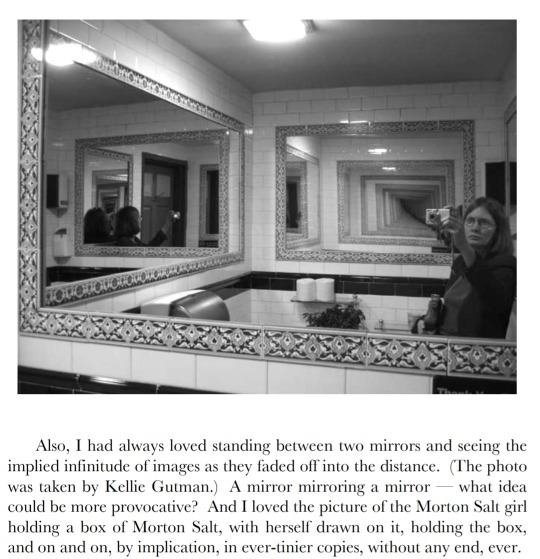
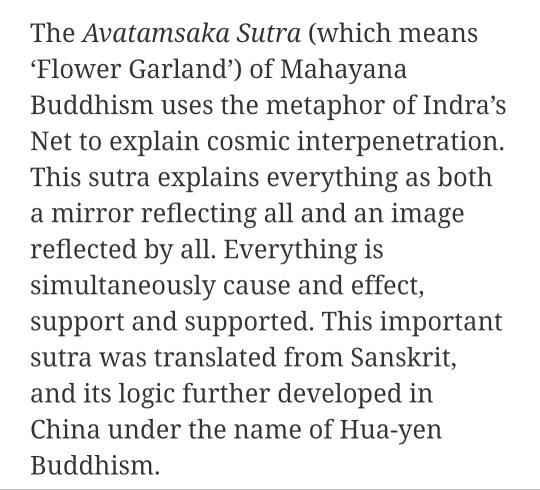
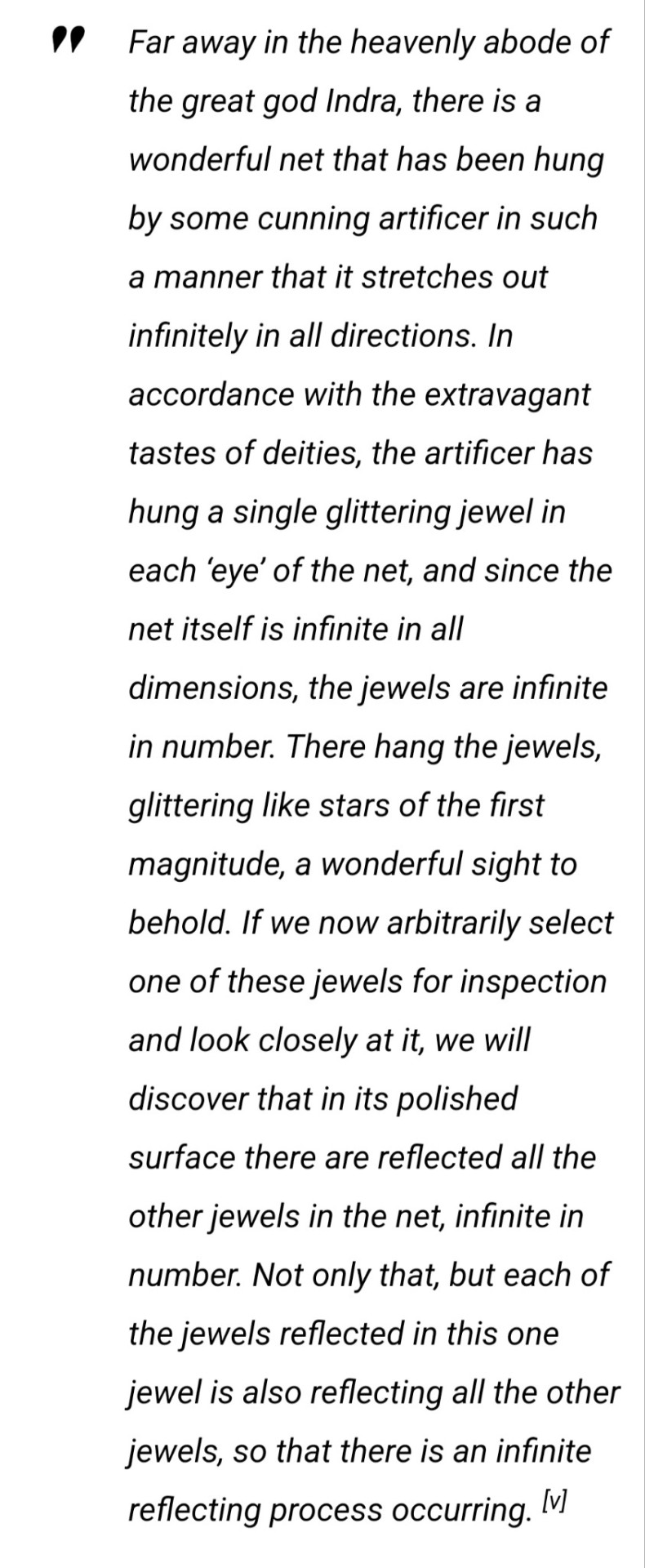
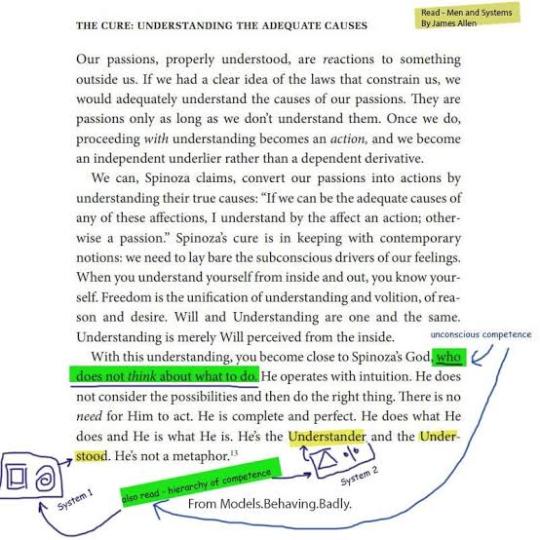

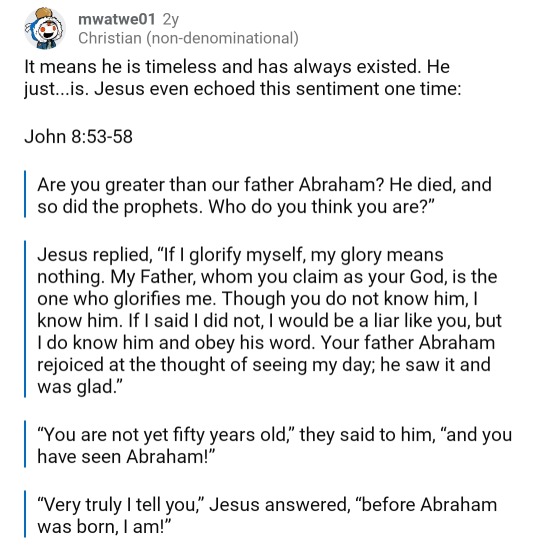

I am not what I think I am.
I am not what you think I am.
I am what I think you think I am.
#eckhart tolle#nisargadatta maharaj#douglas hofstadter#thirdeyetyrone#indra's net#the archetype of religion#i am that#tat tvam asi#i am what i am
4 notes
·
View notes
Text
Currently Listening To: "Indra's Net" by Circa Survive
0 notes
Text
Part Three, Noir Mystery/Dark Academia Trilogy
(As always, the inclusion of religious or mystical themes in my works does not constitute an endorsement of them. The following story contains violence, death, references to torture, to self-harm, drugs, alcohol, implied sex, and to mental health problems, including depression.)
"The Eye Never Forgets"
Chapter I
One Summer night in 1975, in Boston's Combat Zone, a woman sat on a littered sidewalk. Torn dress, one shoe on, a grin missing more than one tooth, she smoked something, something strong.
Just out of her line of sight, a lady of the night got in a beat-up old red car with a man, but just as he leaned back, his leg was cut, and off the lady made with his wallet.
Worlds away from this, Caldwell Rome strolled in Franklin Park, one overcast day in 2008, but saw a glum man, about his own age, named Nikólaos Panagos, though more often called "Diogenes" by the locals.
"Did you ever wonder why I am a cynic, alone and miserable? It is because of the woman who is after you." Diogenes said, somewhat cryptically.
"What do you know of someone after me?"
"I know everything about her. For thirty-three years, I have thought of little else. Look at me. Do you believe I was once wealthy?"
"If you say so, yes, I will take your word for it," replied Caldwell.
"It was in 1975. I curse the day. I sinned, but how I have paid for my sin! Her name was Ann Patterson, originally, I am told. Some say she was the daughter of Roger Patterson, the man who made the movie of the Bigfoot, but they say many things about Roger, true or not."
"I am not a priest. You needn't tell me any of this."
"I want to tell someone. I want someone to understand."
"Okay," replied Caldwell, sitting down on the bench next to the forlorn old man.
"She called herself Bella Lovelace, in imitation of some other woman, and she was the most beautiful woman I ever saw. Words cannot do justice to her beauty. She invited me to make, to m-make… a dirty movie with her. Yes, sir, that's what happened. I was paid $500 for my soul. I did it for desire, not the dollars. I later threw the money in the Charles River. But that wasn't the end of it: Back then, blackmail was her game. I was wealthy, but refused to pay, so she disgraced me before my family, who are ashamed of me to this day. I now wash dishes in a fast food place, live in public housing, might as well be homeless."
"Is there anything I can do?"
"What is there any man can do? What is this world? It is not one, but two, it is torn, so that every instinct we possess leads to evil. Whatever we are without, we are chaos within."
"I have felt that way. I find Confession- to a priest, I mean- helps."
"Maybe I will. What do I have to lose? But I have not told the whole story. Imagine my shock one day, 1983, I see this temptress's photo on the news. The British sought her, said she worked for the Irish, the INLA, had fled to America, back to America. Well, this woman now goes by 'Elle Kane', and she is back here in Boston. 'Elle Kane' comes up again and again in deaths in the papers. I hear of your family tragedies, and no one but her could be at the bottom of them."
"Being a private investigator, I have made many enemies, but what makes you think Elle, or whatever her name is, is one of them?"
"The strange feeling of an old man," replied Nikólaos.
Chapter II
Caldwell Rome refused to buy a television. He grew up with a radio, and felt overwhelmed by sight and sound at once.
"Ray Allen makes another three from the corner! Time out, Clippers…" said the old radio.
Caldwell went through old files. Some haunting failures, haunting the whole city. Filed year by year, worst of all, perhaps, was 1987. That year saw the terrible death of Cassandra Mullin.
In the winter of '87, someone deftly disabled the alarm of the library Mullin oversaw. Evidence suggested more than one person was involved. Mullin was found murdered, her eyes gone as if by vultures, the library ransacked.
But for what? Caldwell looked through the notes. The books stolen, which numbered over one hundred, included "Several Jane Austen novels, a copy of Sun Tzu's 'The Art of War', titles on botany, medicine, American history, Canadian history, some genealogical records, old magazines". Caldwell, with his background in antiques, knew as well as anyone that none of these were of great economic value, so Cassandra's death, which had not been quick, seemed to be for nothing, yet the methodical nature of the crime suggested otherwise.
Boston's definition of mediocrity, Detective Louis Meath, pronounced it, in the papers, as the act of "random psychos", who were "probably high on something". Caldwell knew better, but what could he prove?
The next one, however, hit closer to home: Paul Knudsen, Caldwell's son-in-law, the papers claimed, had, one night in 2001, taken his own life. He had been found dangling from a rope, out his own second story window, yet no one, including Caldwell Rome, who knew Paul believed that he met such a fate of his own accord.
The two cases, Caldwell believed, were connected, through one man in particular, a man reported to have died in a 2002 motorcycle accident, one Birger Pedersen, Norwegian, called "Fenrir" on stage, part of Norway's terrible black metal scene in the nineties. Fenrir had gone after Caldwell one day in 1999, wielding a knife, but as Rome had considerable knowledge of Kyokushin Karate, having completed a 20-man Kumite, Pedersen, though the stronger of the two, had gotten the worst of it, a well-aimed kick to the knee, though Fenrir savagely bit a policeman who took him into custody.
Caldwell Rome's research indicated that Pedersen, a man of evident means whose wealth came mysteriously, who had a home in New York City, as well as another in Norway, but occasionally visited Boston, had been in Boston when both Mullin and Knudsen died, again in '99, of course, and finally, had died in Boston in 2002.
Chapter III
Early in 2002, a grieving Natalie Rome had herself come to the conclusion that Birger Pedersen, still in Boston at the time, was involved in her husband's demise. Teaching herself to throw antique knives, antique per her profession as an appraiser, Natalie was daring enough to venture to one of Fenrir's known haunts, the Handel Bar, which, despite the classical connotations of the name, was a biker bar that barely managed to keep its liquor license, so often were police called over its violence and mayhem.
However, Natalie made a miscalculation, being unfamiliar with such parts of Boston, and instead went to a bar known as The Handlebar. The Jackson 5's "Never Can Say Goodbye" was playing, and neither that nor the ambiance seemed anything like the Birger Pedersen she knew only by reputation.
"I haven't seen you here before," said an unfamiliar woman, smiling at Natalie.
"No, it's my first time."
"You go both ways?"
"What do you mean?"
"Never mind. I couldn't help but notice you're kinda cute," said the woman, flirtatiously.
"Thanks…" said Natalie, a bit uncomfortable.
"I'm Sally. A handshake? Okay."
"No dice, Sally, this femme's mine," intruded another voice. The new woman eyed Natalie rather audaciously.
"Mind your manners, Katie. It's not like we're men or something," quipped Sally.
Natalie looked around, and realized from even less subtle signs that The Handlebar, unlike the Handel Bar, was a bar for women drawn to other women.
Natalie's mother, Agatha Rome, in a most unlikely way, would have better luck. She approached Thomas Banerjee, Broadway performer and old friend of her son Philip, asking about disguises.
"Angie, this woman I know, could make us look like each other. There is practically no limit to what they can do now," asserted Thomas.
"Can they do what I asked?"
"Well, there's one thing… I love you like a mom, and I don't want to be insensitive, but to play a part like that, you would have to be very limber, and you're not as young…"
Agatha, smiling, responded by doing side splits with ease.
Chapter IV
As of 2010, Clyde Tomasini, producer, dancer and choreographer, was considered Boston musical theatre's most important and acclaimed person, and some would have expanded that to "America's most important" as well. Having explored many themes, it was in this year that Tomasini struck upon the idea of combining Broadway dance with Bollywood dance, though Thomas Banerjee dropped out of the production, considering the core of Tomasini's plot idea too derivative of Bollywood's "My Brother… Nikhil" (2005).
Philip Rome, however, a noted designer of musical theatre sets and costumes, was very active in the production, entitled "Closet to India". Inspecting the set, however, Philip nearly lost his life when a counterweight plunged toward him. The same instant, however, Tomasini, acting quickly, tackled Philip out of the way, both escaping with only minor injuries.
Meanwhile, in a bar across town, a random man recounted a story:
"It's true. This housewife type, Agatha Rome. This horrible man, Fenrir, somebody called him. He's playing 'Cape Fear' with the whole family, you know. He shot their pitbull. Agatha thinks he killed her son-in-law, so she gets this guy to let her disguise herself as this made up version of him, at a bike, you know, motorcycle repair shop, and up shows Fenrir."
"You've been drinking too much, Bobby."
"No, I swear: She's made up like this young man, wild red hair, contact lenses that make it look like she's on something. She fixes his bike, she fixes it so it doesn't work, and he dies in a crash."
Or so went "Bobby's" version of the story.
Chapter V
In 2015, not far from where Bobby told his tale, an abandoned old warehouse was supposed to be the lair of "Salty". Children, mingling fear and curiosity, claimed that a man, a man adults would describe as an occultist, did rituals in the prosaic ruins, rituals involving salt. They often dared each other to go to the warehouse, making bets about who would go there alone.
Philip Rome, veteran of more than one near-death experience, would soon have yet another. Whisked into a limousine against his will, he was taken to a building not unlike the old warehouse, but this one very much occupied.
A dim lamp's flickering light fell on Georg Faust, notorious racketeer and rumored agent of espionage (though for which nation, no one knew), who often introduced himself by adding that he was "no relation" to the Faust of legend. Most eerie of all, he was seated in what appeared to be an old electric chair.
"Philip, excuse the awkwardness of our introduction," said Faust, with a touch of a German accent, "I do wish, however, to let you know about some fine likenesses of yourself."
"Likenesses?"
"Yes. Also in the photograph is your good friend, Elire Dervishi, a rising Broadway star, I understand."
"What about her?"
"You two are 'just friends', as you Americans say?"
"Yes."
"Kindly explain this photograph. Is it customary in Albania [Elire's land of origin] to kiss friends on the lips?"
"Oh, that… it's none of your business, but we played tennis, which her father wanted her to do professionally, but this was just for fun. It was after she defeated me in straight sets, we went to kiss on the cheek, but I forgot she is left-handed, so it went wrong, that's all."
"Oh, Philip, I do believe you, but Sokol, her father, alleged Albanian mobster, feared almost as much as I am, will not. I understand he disapproves of her Broadway career, and considers that you turned her in that direction. Well, what would this hard man say if he saw a copy of this photograph?"
"In other words," asked Philip, "Blackmail?"
"Not precisely," explained Georg, "It is not money we want. I merely want you to tell your father, Caldwell Marion Rome, what you experienced today. It will give him the perspective not to talk too much."
Chapter VI
Little did anyone in this mysterious lair know that outside was a woman, a woman who went by the name Elle Kane, smiling as she manipulated some exterior electrical wiring.
Back inside, Philip asked Georg why he was seated in an electric chair.
"Oh, this, yes. I often forget," laughed Georg, "It is not operational. It was deactivated some three decades ago, but it gives me a flair for the dramatic, don't you think?"
Philip noticed that a wire to the electric chair had been cut. Puzzled, Georg said that he had not cut that wire, nor asked for it to be cut. The wire had been severed by Kitao Takashi, also Caldwell Rome's instructor in Kyokushin, for reasons the reader will later learn.
Georg, resuming the conversation, began to say, "But look me in the eye…"
At this moment, a sudden blast of electricity shook Georg Faust, violently shaking him. With the wire cut, how was this possible?
In the quiet of the Rome residence, Agatha being away visiting relatives, Caldwell Rome slumbered in strange dreams, unaware of his son's predicament.
Following the logic of a dream, Caldwell saw Cassandra Mullin as she had been in 1976, when readers of "Ars Oculus" first knew her. The dream knew her, however, not as Cassandra, but as "Rose Davies", burlesque dancer, by her side ghostly old men, the men with no eyes.
At the song's final lines, "The edge of the big reveal…", per Rose's tease, she revealed not herself, but the genealogy Caldwell had read that fateful day thirty-nine years ago.
Chapter VII
The next day, Caldwell Rome saw in the paper the meaning of his dream: A much lauded and discussed international charitable effort- or so it was promoted- Paint the Heart, touted as a charity to help impoverished children use art to earn money and express themselves, was the brainchild of United States Senator and former corporate mogul Montgomery Cross. Official biographies claimed that Montgomery's father was one "Michael Elliott Cross", in fact nonexistent, but the dream unearthed Caldwell's memory: Even as he looked for the name of the notorious Robert Cross, back in 1976, he had mentally noted that Boston's own Montgomery Cross's father was, in fact, David Cross.
This, then, was the secret for which Cassandra Mullin died, interrogated, no doubt, as to who had looked through these old family records. The assailants then ransacked and stole random books, Caldwell deduced, to disguise the particular importance of the genealogical records stolen.
The reader may understand the context if told a bit more about the late, hated David Cross, a eugenicist known mainly for the African Trepanations, experiments on innocents in Africa that horrified every civilized person, and the mere association with David Cross would end any public career, were it widely known.
More conversations with fellow old-timer Nikólaos Panagos were, for Diogenes, therapy of a sort, but for Caldwell, crucial to piecing together his failed cases, and turning them, even now, in his ninth decade, into successes.
If Nikólaos could still be relied upon for his memory, he told the story that Ann Patterson's crimes did not stop with the INLA dealings, but that she had been in the employ of spymaster Georg Faust, which tied her to the threats Philip relayed, per his instructions, to Caldwell.
"Look up old papers, old records," said Diogenes, "Everywhere Patterson went, death followed. Mr. Rome, she hunted teen campers for sport, for sport! The very Karate academy you used to attend: Well, Elle Kane would maim its students to sharpen her skills [this, if it is to be believed, could explain Kitao Takashi attempting to stop Ann Patterson's crimes]. No conscience, conscience…"
Nikólaos Panagos had fallen asleep on the familiar park bench.
Chapter VIII
Dreams know no time, and in 2002, Agatha Rome drifted off to timeless aeons. As a sleeping Agatha saw it in her mind's eye, a large female bodybuilder, in a red bikini, transformed, in an instant, into a powerful she-wolf. It was this dream, for reasons unclear, that inspired Agatha to discuss disguises with Thomas Banerjee, and if "Bobby" can be believed, take revenge on Birger Pedersen, a man so hated that no one claimed his remains.
Complicating matters, however, was the death of Carl Wozniacki in 2012, dangling, just like Paul Knudsen, from his own second story window. Wozniacki was allegedly a contract killer and MDMA dealer, called the "Love Killer" by the press, and a man with many enemies, though he was also going through a divorce at the time he passed. Among those to whom he allegedly sold ecstasy was Peter Knudsen, troubled son of Paul, trying to forget his father's senseless death.
"It's this way," explained Caldwell to a cop on the beat, "Either Wozniacki took his own life that way as an admission of guilt in Paul's death, or he was murdered by whoever killed Paul, but that could not be Birger Pedersen, who had himself been dead a decade."
As they walked, they approached Kneeland Street, in Boston's Chinatown.
Chapter IX
Boston, Massachusetts, a bleak, rainy day, 2022. Philip Rome, shaking the water off his umbrella, entered his theatrical place of work. Philip, dripping wet, noticed a framed portrait of Sir Alfred Hitchcock, a new addition to the venue.
"Our first scene back [from lockdown] is about birds, so I thought that appropriate," explained producer Clyde Tomasini.
"Speaking of that," began Philip, "I think the set idea is too expensive with our limited cash flow, so I have…"
"Is it difficult?" Clyde interrupted.
"Is what difficult?"
"Dealing with scarcity, the first law of economics?" asked Tomasini.
"It comes with being human."
"Ah, but that's where you're wrong. Scarcity applies to those who earn, but not those who steal, like me, for instance."
Philip looked at Clyde, stunned.
"You steal? What did you steal?"
Clyde began to laugh oddly, "You must admit I am a genius. The way I 'saved' your life in 2010, but I rigged the counterweight to fall in the first place!"
Rome began to back away from Tomasini.
"Don't worry, Phil, my aim was never to hurt you, only gain your trust."
"Needless to say, now you've lost it."
"But what if I told you, Philip," began Tomasini, halting, as if for a dramatic pause, "That I am the new Shakespeare, and that you will be immortal even for having known me? So, so many playwrights, all in the shadow of the Bard, all broken by scarcity, the need to receive grants, donations, snivelling before patrons and bureaucrats. Well, no more!"
Rome had no response to this grandiosity.
"You, Philip, friend of horses, will be the next Franz Marc, the next Salvador Dalí, master of dreams. Where is this budget, you wonder? Why, from Paint the Heart, with over a trillion, by US dollars, in funding, some on the books, some off them. That was Georg Faust's angle: He was blackmailing Monty Cross over something, and he needed to keep it a secret or lose his percent of the money."
"That was why Faust kidnapped me?"
"Yes, but you should thank me. I killed him," proclaimed Tomasini, his pride evident, grinning.
"Why would you confess this to me?"
"I have the photo negatives of that kiss, accidental or not, as well, Philip, but I would rather we were partners."
"So you murdered Georg Faust?"
"Well," began the grandiloquent master criminal, "Strictly speaking, human law could do nothing about it."
To Clyde, it all seemed a light comedy.
"But I thought you said…" began Philip.
"I said I killed him. I did it by a hex. I, my dear Mr. Rome, am the legendary 'Salty'. It began simply enough. I am a charming man, as you know. Evidently, it seems Georg Faust's sister, Stefanie, lovely, golden-haired tigress, has an unfaithful husband. Rather unsatisfied with this cad, she turned to me, in Maithuna."
"Where?"
"Not where, what? Maithuna is intimacy of the Tantra. I captured her subtle body thereby, and she mine, but I knew it, and she did not. Now, the difficult part: How to transpose her essence with that of her elder brother? Fortunately, I am an Adept. After, I admit, some failed experiments, I found the perfect spell, if you will: A statue of Ardhanarishvara, androgynous Hindu god and goddess, but I wrote Stefanie's name, in Latin, on Shiva, and Georg's name on Parvati, with the Algiz rune between them, for my own safety, salted the ground for the Magnum Opus, and all was prepared."
"Prepared for what? A padded room?" sneered Philip.
"Ah, but Philip, you saw the result. I grounded myself, put an electric shock through my own subtle body, elementary sympathetic magic, and you witnessed the result."
Chapter X
Philip Rome now realized that any show of skepticism or of scruple would weaken his position.
"Why did we need to get Georg out of the way?" asked Philip, changing his manner to that of grasping cynicism.
"Because, my dear Phil, he was a philistine, no art in him. He wanted the money only to reinvest, to make more money, never dreaming what money could make immortal."
The lighting designer, none other than Peter Knudsen, a man of striking palor, was set to join them, but was rather delayed by the harrying of a large flock of greedy pigeons, seeking the free food to which they had become accustomed.
"There is a problem in our plans, however," said Philip, with a look of concern.
"What possible problem could there be?"
"You should pay more attention to the local news. Georg Faust, though in a coma, is expected to survive."
Tomasini showed fear for an instant, then gave Phil an odd smile.
"Marvelous humor, Mr. Rome… you had me for a moment! More of why I need you for comedies," laughed Clyde.
"No, it's true," interjected Peter, who had finally arrived, "This Faust, the racketeer, is expected to come to any day now."
Philip and Peter looked at Clyde, and Tomasini began to believe them, and turned ashen in color. For once, he seemed at a loss for words. Mr. Tomasini stepped on stage, beginning to open the curtains, standing precariously.
"Clyde, don't!" shouted Philip.
For an instant tearful, Clyde Tomasini's last words were from Hamlet, "Conscience doth make cowards of us all."
Philip and Peter winced as a heavy counterweight fell on the mad playwright. How much of his story could be believed? One matter was certain: Georg Faust was dead.
Chapter XI
Jeremiah Rome lacked the intellect or the good sense of his siblings, Philip and Natalie. Appropriately, he moved to the West Coast, and equally fitting, was in middle management in a multinational corporation, and as such, his stumbling ways were scarcely noticed. He occasionally, however, visited his Bostonian family, doing so in the Summer of 2023.
Louis Meath's heir to obliviousness, Jeremiah had not the scarcest notion of the trials his family had endured, but seemed to know every catchphrase and slogan ever used to market trendy technology. Neither, moreover, had the recklessness of his youth abated, but on this day, as he drove, rather over the speed limit, into Boston, it would work for the best.
Ann Patterson, or call her Bella or Elle, by any name, took a deep breath and rolled back her eyes in a parked vehicle, a common enough make and model. Like an addict feeling the fix, Ann would experience her fix of violence today, she believed, putting a silencer on an automatic handgun.
She began tailing Philip Rome through traffic, having timed it perfectly. As Philip did not know her by sight, let alone through a rear-view mirror, all Ann had to do was wait for an opportunity, or so she thought.
In barrelled Jeremiah, not recognizing Philip's vehicle, but fortunately for Phil, his younger brother instead struck Ann Patterson's car, which itself was over the speed limit, as Patterson, to avoid suspicion, would alternately pass and fall behind Philip's car.
In a grisly wreck, which Philip managed to avoid, Ann Elle Patterson (1949-2023) met her end. Jeremiah's corporate connections, meanwhile, prevented any but the lightest legal consequences.
Chapter XII
Indra's net shook: A rich young man in Back Bay met an irresistible woman on the World Wide Web, calling herself "ChinaDoll68U", but this woman did not exist, and when the baited fish went to meet her, he was bound and gagged by agents of Sokol Dervishi, aforementioned Albanian gangster, presumably for ransom.
The next day, splashy headlines read, "Wealthy Heir Missing", while elsewhere in the city, a sleepy old man, Nikólaos Panagos by name, was working a fast food grill, salting the hamburgers, as Agatha Rome did needlepoint meant to depict the Electron Cloud Model of the atom, but to the strictly artistic mind, perhaps abstract expressionism, to keep her mind off her husband's passing, the gravestone of Caldwell Marion Rome reading (January 6, 1933-April 12, 2023), and the same week in April, 2023, headlines glared "Senator Cross Family Horror"- in spite of all, he could not outrun his family.
On a stage, in an electric blue dress, Grace Martel, known to readers of "Jashi", was practicing a trick as a magician. Reaching into a fish tank full of water, she removed her hands from the water, and flames shot from them, then, with a circular motion of her hands, a ring of smoke rose into the air.
The end.
#short story#original content#noir#mystery#urban decay#dark academia#urban gothic#occult#Ardhanarishvara#Hinduism#Tantra#Indra's net#Mahayana#Buddhism#Catholic#runes#alchemy#sympathetic magic#70s#burlesque#surrealism#Broadway#musical theatre#Bollywood#Bigfoot#Linda Lovelace#Kyokushin#Diogenes#electric chair#lesbian
1 note
·
View note
Text
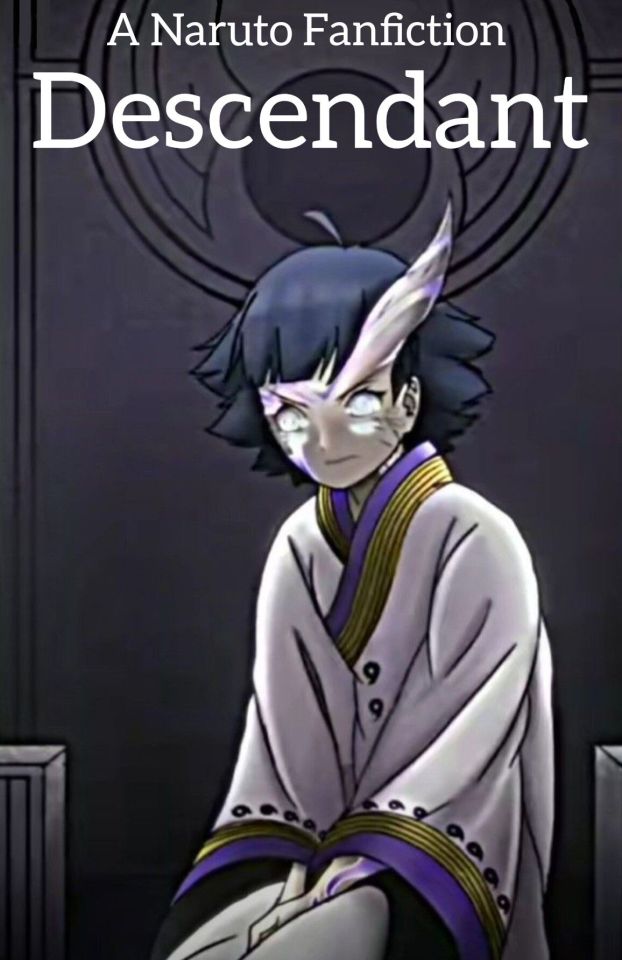
This is my Naruto Fanfiction, Naruto does not belong to me. The original picture is not mine (thank you Pinterest) and the book is not fully edited.
Links to it depending on where you read :
Fanfiction.net :
https://www.fanfiction.net/s/14388668/1/6
Wattpad:
https://www.wattpad.com/story/278691034?utm_source=android&utm_medium=link&utm_content=share_writing&wp_page=create&wp_uname=thebutterflysite
AO3:
https://archiveofourown.org/works/59529520
CHAPTER 1 [GLIMPSE]
"Hinata"
Hitomi spoke the name of her daughter with a gentle voice while her round lilac eyes glazed over the young petite girl. She looked like a miniature version of herself, from the raven colour of her short hair to the round shape of her own lilac eyes. She was definitely going to be a very beautiful woman, then again no one born from the Hyūga clan was ever unsightly.
The matriarch of the Hyūga clan looked at Hinata who stayed unresponsive from her call, making Hitomi frown. She called Hinata again but the young heiress didn't even stir and that made the frown on Hitomi's delicate face to be more profound. This had been happening too much this past few weeks.
Hinata had been sleeping a bit too much.
It wasn't anything strange for children at her age, but for Hinata who usually slept less than 7 hours, it was quite odd. What was worse was the fact that Hinata didn't respond to her calls, her daughter was a very light sleep, she could even hear someone enter her room, if anything she could feel the presence of anyone else. Her daughter was an alert child, so this new behavior was quite worrisome for Hitomi.
She didn't know why her daughter's sleeping habits had changed, but she knew that Hinata knew why.
Unfortunately, her daughter had not told her anything and Hitomi knew she would most likely keep it hidden from her, which brought another frown to her face. Her daughter had this tendency of keeping things hidden when she was faced with a problem. She would rather keep it to herself than speak it out loud as to not worry anyone, even though, that didn't make it any better.
Hitomi's thoughts were disrupted as she heard Hinata take a sharp intake of breath. She looked at her daughter who's eyelids were shaking, while her eyebrows were furrowed in what seemed to be pain, her lips were pressed in a thin line and her entire body was trembling. She looked like she was having a nightmare.
But clearly it wasn't just an ordinary nightmare. No, it seemed to be worse. Hinata whimpered in pain as Hitomi's calm demeanour changed to a nervous one. She grabbed her daughter and shook her violently.
Hinata still wouldn't wake up.
The matriarch grabbed her daughter and started running to the compound with a panicked expression on her face. She ignored the pain still aching from childbirth and ran in her compound like she had lost all senses.
Hinata's whimpering turned into soft sobs, almost as if afraid to be heard by the world.
The four year old sobbed as Hitomi ignored etiquette leaving the other clan members bowing to her. She finally came to a halt when she met Hiashi. He came to her side and held her by the waist, while her breath shortened as her stomach aches got the better of her. She almost wobbled to the ground if not for Hiashi's firm hands holding her in place.
"Why are you running?"
Hiashi asked her as he held Hinata with his left hand and held Hitomi's waist with the other. Hitomi didn't say anything, but rather tried to regain her breathing as her back became more painful than ever. It had only been a month since she gave birth to little Hanabi so the pain was still fresh.
Hiashi gave an irritated sigh though he was extremely worried about his wife. He looked at Hinata who was most likely the source of Hitomi erratic behaviour.
He observed Hinata's tremors and he frowned even more. She seemed to be struggling.
"Hinata"
He commanded as the young girl continued to sweat furiously unable to hear anything that her father said. She was too occupied with the terror she was seeing. "Hinata!" Hiashi demanded, but the young child continued to hiss in pain as if she couldn't hear nor see anything, other than the terror right infront of her
Hiashi looked at Hinata and his heart sunk, what was going on here? He looked at his surroundings to see some of the members still bowing. Though he could tell they were still looking, his eyes narrowed for a moment and he issued a command.
"Take Hinata to to her room" he ordered and looked at his wife who was almost close to fainting. He held her and accompanied her to her room with a calm look on his face, as if everything that had happened did not bother him. Hitomi on the other hand was too tired to admonish him and watched him leave her room.
Hiashi strut like a soldier ready for battle to Hinata's room. He found the young girl in a midst of grasping the covers whilst inching away from the servants. "Leave us" Hiashi commanded as the servants bowed and left while Hinata intook a large amount of breath.
Hiashi walked closer, the young heiress shot up and moved her head robotically to face the patriarch of the Hyūga clan. Hiashi watched her face as two bumps appeared above her eyebrows and his lips thinned. He saw a wrinkle form just at her forehead and removed her hair. His hand trembled and dropped from her forehead.
Hinata had a large third eye on her forehead.
His breath shortened whilst Hinata opened her eyes and fell in his arms. Tears fell from her lilac eyes as she grabbed onto her father's garment with eyes full of pain no child should ever have.
"T-tou-SAMA!" The usually soft spoken Hinata cried out as she grabbed onto him forgetting all manners. He held her tightly as she cried out her grievance to her father remembering everything that she had seen, everything she could never unsee.
There was a certain trace of desperation and pain in her cried, one that tore Hiashi's core apart though the frown remained.
"I'm here"
He muttered as he pat her head watching the bumps fade away and her third eye disappear. Although he couldn't forget the round, green paternized, eye that slightly resembled the sharingan. With that thought in my mind, Hiashi felt cold..
#writing#anime fanfic#hinata hyuga#itachi uchiha#itahina#ao3 fanfic#wattpad fanfiction#fanfiction#fanfiction net#author#indra otsutsuki#toneri otsutsuki#naruto
5 notes
·
View notes
Text

Bosque del Apache National Wildlife Refuge, near Socorro, NM: Sandhill cranes (Antigone canadensis) arriving for the winter. Photo: Dennis Chamberlin (Oct 2023) :: [Robert Scott Horton]
* * * *
The Net of Indra is a vast, bejeweled matrix spanning and encompassing the whole universe. From every knot hangs a jewel, and each jewel reflects all the other jewels within the net. My father’s life was one jewel hanging from a knot in that infinite web, and in that jewel was reflected my life, and my brothers’ lives, and my mother’s life. —Eugene Richards, “A Life Too Long”
[alive on all channels]
#Bosque del Apache National Wildlife Refuge#Socorro NM#Sandhill cranes#Dennis Chamberlin#robert Scott Horton#Eugene Richards#A Life Too Long#alive on all channels#quotes#the Net of Indra#ancestors
24 notes
·
View notes
Text

There is an endless net of threads throughout the universe… At every crossing of the threads there is an individual. And every individual is a crystal bead. And every crystal bead reflects Not only the light from every other crystal in the net …But also every other reflection Throughout the entire universe. "an adaptation of The Net of Jewels, or Indra's Net, one of the oldest written creations of humanity"
~ Anne Adams
8 notes
·
View notes
Photo
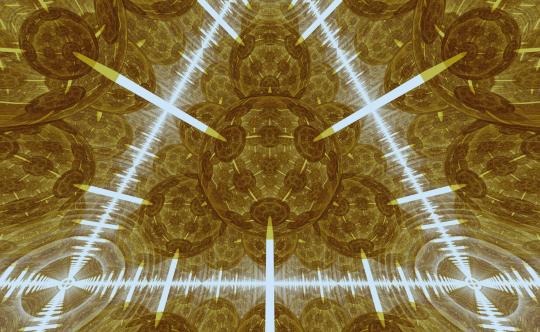
A 3D rendering depicting the Indra's net metaphor by Bunyk
67 notes
·
View notes
Text
The Heaven Matrix: Exploring the Cosmic Web of Interconnectedness
stunnIng cosmiC web In the tapestry of human thought, few concepts have the ability to transcend culture, belief systems, and even science itself. The “Heaven Matrix” is one such idea—a metaphor for the interconnectedness that binds all things, where divine order, energy, and purpose converge to create the structure of existence. From ancient spiritual traditions to modern scientific theories,…

View On WordPress
#Chaos Theory#cosmic web#Heaven Matrix#Indra’s Net#Interconnectedness#Ma’at#spiritual frameworks#Taoist cosmology#Tree of Life#Unified Field
1 note
·
View note
Text
Dane Cervine: The Jeweled Net of Indra
Driving down the freeway, remembering Hindu mythology—Indra’s net, each intersecting weave holding a jewelreflecting every other facet of every other jewel, infinitely.Suddenly, I see the hands that paint the white lines,that lay the black asphalt, hands of a man joyous or lostsoap-scrubbing his body clean for dinner and beer,for the wife who loves him, hands that hold their ticketsfor London to…

View On WordPress
0 notes
Text
youtube
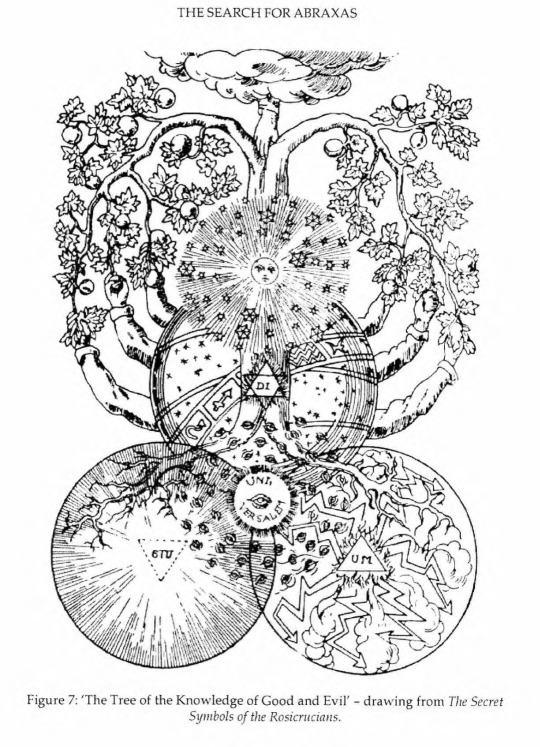


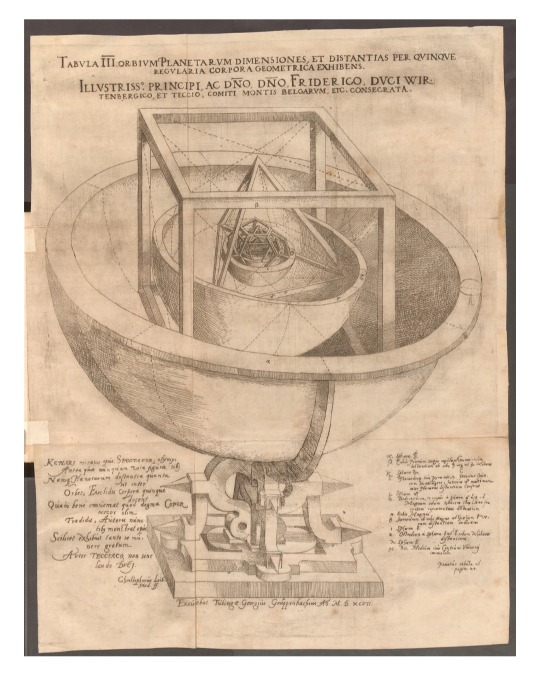

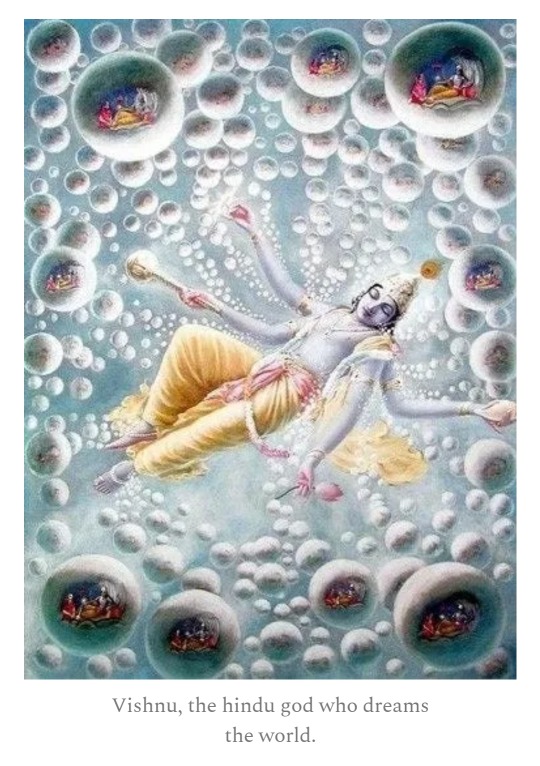



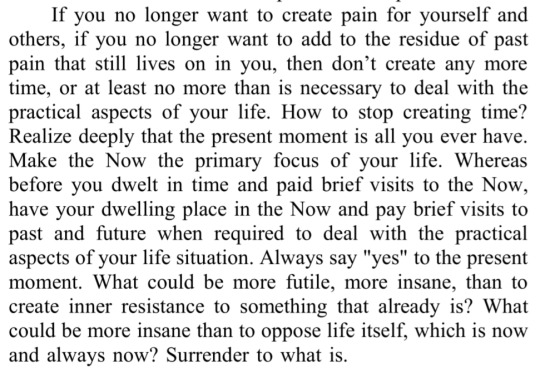
youtube
2 notes
·
View notes
Text
As a Christian theology nerd this is me and Buddhist schools of thought.
Like, I don't accept the basic tenets of buddhism ... but if I did then clearly yogacara is the most coherent framework even if Nagarjuna is my second favorite philosopher.
religious philosophy is necessary for a certain type of nerd to be an intellectually fulfilled believer, but if you're not already a member of a religious community and don't buy in to the bullshit then you don't have any need to conjure up complicated frameworks to justify it, so it's a harder sell.
I think it's still possible to make a case for it, I mean any complicated argument is catnip for nerds and religious arguments are sufficiently close to debates about superhero powers for there to be an easy transition, but you actually have to make it fun! nobody is forced to do this stuff any more, and in a competitive market of ideas it's harder for any one dogma to maintain its grip, you have to put in the work to make it appealing.
#Yogacara is only consciousness is fundamentally real#Nagarjuna said that everything is only relatively real#But tmk the conditioned dependent reality of causes is only true from the perspective of events being mental phenomena#So it makes a lot of sense for me that if causes only dependently arise from what they cause from the perspective of mental events#Then causes only dependently arise in the context of already being mental events#But some yogacara schools teach that everything is everything else anyways due to infinite interpenetration and Indra's Net#So this might all be a moot point as if everything is everything else#then Yogacara and Madhyamaka (Nagarjuna's school) doesn't contradict#Tripitaka from JTTW was based on was Yogacara#overly sarcastic productions#jttw
25 notes
·
View notes
